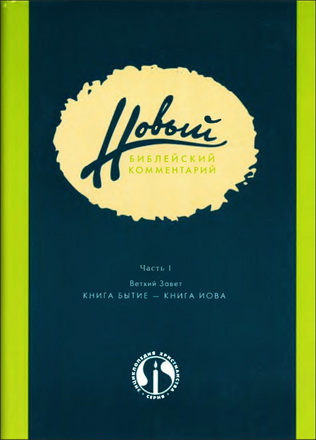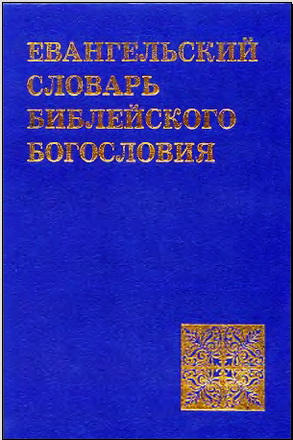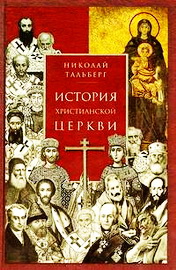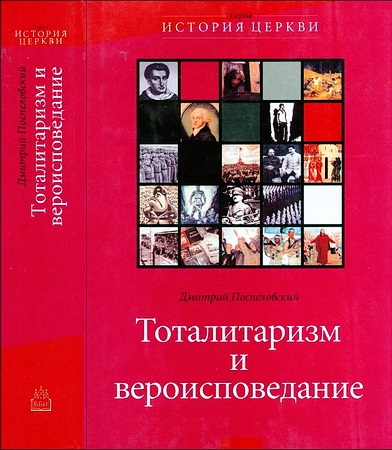
Zondervan Bible Dictionary - модуль BibleQuote
Zondervan Bible Dictionary
Formerly titled: The NIV Compact Dictionary of the Bible. – Grand Rapids, MI: Zondervan, 2008.
ISBN 978-0-310-29304-0
The NIV Bible Dictionary can thus be used in three ways:
1. As a dictionary for quick reference, by using the main dictionary.
2. As an encyclopedia for a more in-depth study of a particular topic, by going to the Topical Index and reading some or all of the articles that are listed under a main heading.
3. As a basic course of study, by reading through the "Survey of the Bible and Bible Lands," looking up in the Topical Index the words and terms in the "Survey" that have an asterisk (*) in front of them, and then reading in the dictionary proper the articles that are listed under the main heading. (The "Survey" covers seven main topics: "What is the Bible?"; "The Old Testament"; "The Time between the Testaments"; "The New Testament"; "The Lands of the Bible"; "The People of the Bible"; and "Religion and Worship in the Old and New Testaments."
The NIV Bible Dictionary is a condensed version of The New International Dictionary of the Bible. Although The NIV Bible Dictionary is based on the New International Version of the Bible (NIV), it contains frequent comparisons with the King James Version (KJV).
* * *
ACTS OF THE APOSTLES
The book that selectively gives the history of early Christianity from Jesus’ ascension to the end of two years of Paul’s Roman imprisonment.
I. Title of the Book. An early MS has the title "Acts" (Gr. praxeis, doings, transactions, achievements ). Other early titles are "Acts of Apostles," "The Acts of the Apostles," "Acts of the Holy Apostles." Acts narrates actions and speeches chiefly of Peter and Paul. There is some information about Judas (1:16 – 20), the man chosen to succeed him (1:21 – 26), John (3:1 – 4:31; 8:14 – 17), and James (12:12). The Twelve, except the betrayer, are listed in 1:13. The title "Acts of the Holy Spirit" has often been suggested.
II. Author. Not until A.D. 160 – 200 do we have positive statements as to the authorship of Acts.
From that time onward, all who mention the subject agree that the two books dedicated to Theophilus (Luke and Acts) were written by "Luke, the beloved physician." Only in modern times have there been attempts to ascribe both books to Titus or some other author.
III. Place. The place where Acts was written is not named, though the sudden ending of the book, while Paul is residing at Rome awaiting trial, makes Rome an appropriate choice.
IV. Date. Acts must have been finished after the latest date mentioned in the book, in 28:30. The abrupt close indicates that it was written at that time, c. 61 or 62. Luke’s Gospel has an appropriate ending; Acts does not. There is no hint of Paul’s release or of his death (nor of how his trial came out).
V. The Speeches in Acts. The style of the speeches in Acts is not Luke’s, but that which is appropriate to each speaker: Peter, Stephen, Paul, even the minor characters — Gamaliel (5:25ff.), the Ephesian town clerk (19:35ff.), and Tertullus (24:2ff.). Similarities between the speeches of Peter and Paul are explained by the fact that Paul explicitly preached the same gospel as Peter did. Speeches by the same person are varied in type, each suited to the occasion.
VI. Summary of the Contents. Introduction, 1:1 – 26. 1. The Day of Pentecost, the birthday of the church, 2:1 – 47. 2. Pictures of the first church in Jerusalem, 3 – 7. 3. The gospel spread to all Judea and Samaria, 8:1 – 25. 4. Three "continental" conversions, 9 – 10. 5. The Judean mission to the Gentiles and Peter’s imprisonment, 11 – 12. 6. Paul’s first missionary journey, 12:24 – 14:28. 7. The Church Council at Jerusalem, 15:1 – 29. 8. Paul’s second missionary journey, 15:30 – 18:23. 9. Paul’s third missionary journey, 18:24 – 21:16. 10. Paul’s arrest and voyage to Rome, 21:17 – 28:31.
KIDNEY
(Heb. always in the pl. keli257yôth, Gr. nephroi ). This organ, being surrounded by pure fat, was adapted to burning in sacrifice when the whole animal was not burned (Exod 29:13, 22; Lev 3:4, 10, 15; 4:9; 7:4; 8:16, 25; 9:10, 19). Slaughter in a war that was a judgment of God was a sacrifice in which the kidneys figured (Isa 34:6). From their inaccessible location in the body, the kidneys were regarded as the seat of the emotions; KJV, ASV marginal note, "reins" usually "heart" in ASV, RSV, NIV (Job 19:27; Ps 7:9; Jer 11:20).





Комментарии
Пока нет комментариев. Будьте первым!